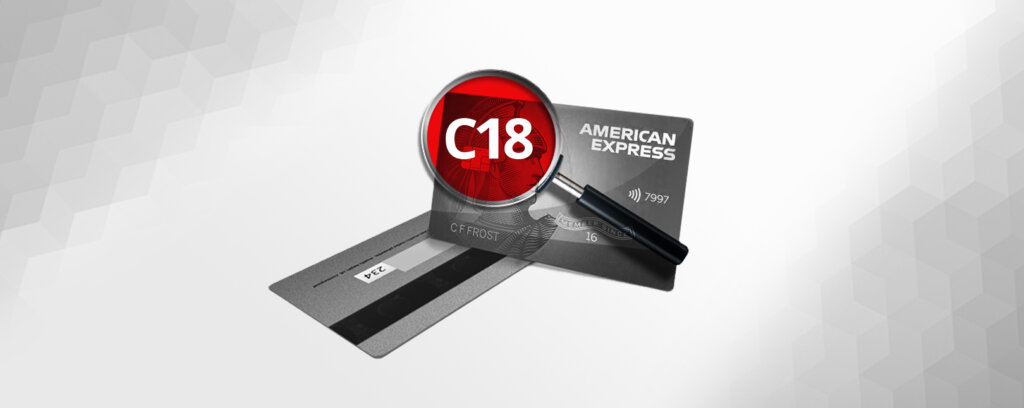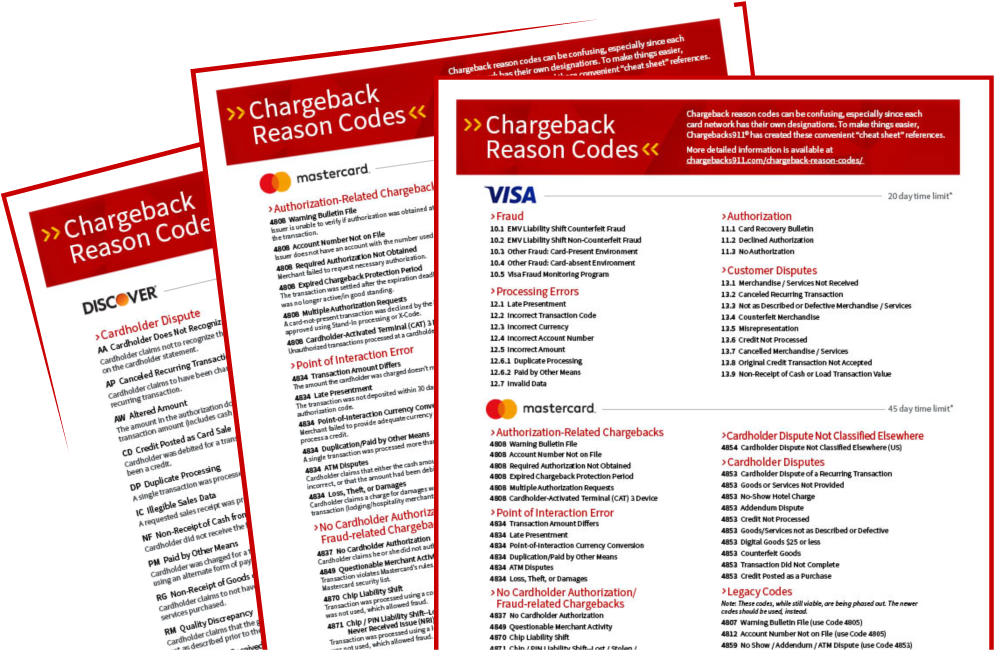
How to Handle Amex Reason Code C18 Chargebacks
American Express breaks down the acceptable causes for a customer to dispute a credit card transaction in their dispute guidelines. This is done for the sake of simplicity and standardization.
Each chargeback trigger has a designated “reason code.” Amex can then assign the appropriate code to each case to show the given reason for the chargeback.
Learn more about Amex reason codes
Today, we’re looking at one reason code in particular — C18 — and exploring the causes, timeframes, fees, and other specifics. We’ll also explore what you can do to prevent these chargebacks from happening.
Recommended reading
- How do Banks Conduct Credit Card Fraud Investigations?
- My Bank Account is Under Investigation? What’s Going On?!
- 10 Tips to Stop DoorDash Chargebacks Before They Happen
- Debit Card Chargebacks: Everything You Need to Know in 2024
- Students Earn $164K Through Program Sponsored By Cb911®
- PayPal Purchase Protection: What is it & How Does it Work?
What is American Express Reason Code C18?
American Express chargeback reason code C18 is “‘No Show’ or CARDeposit Canceled.” This reason code is in the contact of a lodging reservation or a credit for a CARDeposit charge.
It’s common practice to assess a “no-show” charge for guests who make a hotel reservation, but then do not show up. However, it the cardholder canceled their booking in accordance with your policies, this would not be an option.
Reason code C18 may be used to explain that the cardholder claims to have canceled a reservation, but did not receive a credit to which they are entitled. Or, Amex may use this reason code to signify that the cardholder was entitled to a credit for a CARDeposit charge, which the cardholder did not receive.
What Caused This Dispute?
Amex Chargeback Reason Code C18 is primarily issued when a lodging reservation was canceled by the booking cardholder, but they money for the booking was not refunded. To demonstrate, this scenario can arise if:
- You did not complete the cancelation of a reservation in a timely manner.
- A cardholder was promised a refund for a canceled reservation, but no credit was issued or received.
- A credit was issued, but the cardholder was billed before a credit posted to their account.
- The cardholder couldn’t understand your cancelation policies, such as cancelation deadlines.
- The cardholder attempted a cancelation request as directed, but was not successful.
- A cancelation was processed, but was delayed, resulting in the card in question being charged.

How to Respond to Amex Reason Code C18 Chargebacks
Upon receiving an Amex C18 chargeback, your instinct will naturally be to address the issue immediately. So, what's should you do if you feel you can demonstrate that the cardholder is in the wrong?
If you're convinced the chargeback was incorrectly applied, initiating a dispute response is the way forward. This is done through a process called representment.
Representment is your opportunity to contest a chargeback. It involves presenting evidence to the card issuer (American Express, in this case) proving all transaction stages were valid and in line with the provider's protocols. This may entail multiple crucial pieces of evidence.
Keep in mind, there is a rigid time frame to abide by. You have just 20 days to lodge your response with American Express. Note that this duration also encompasses the period taken for your acquirer to send you a dispute alert, as well as the time taken by the acquirer for reviewing and submitting your case. In realistic terms, you may likely have less than five days to compile and submit your response.
Acceptable Evidence for Amex Reason Code C18 Responses
You can re-represent these charges under the condition that you have compelling evidence.
For American Express reason code C18 chargebacks, you’ll need to provide either documentation that shows the “no-show” charge or CARDeposit charge was valid, or proof that you have already provided a credit that offsets the disputed charge.
Proof of your cancellation policy may just be the most convincing evidence in this situation. Your task is to clarify to Amex that you have a comprehensive system in place for policy disclosure to card users, and that you adhered to these policies. Further, you should also provide evidence that the purchaser failed to comply with these policies, such as the date of the cancelation request (if such a request exists).
In addition to this, a copy of the transaction record, such as the receipt or invoice, could also be helpful. The intent behind this action is to provide additional support to the argument that the card holder did not adhere to agreed-upon policies during checkout.
The success of representment depends on the thoroughness and relevance of the evidence provided. Maintaining detailed records of transactions and communications with customers is vital to effectively counteract all chargebacks, including those under reason code C18.
How to Prevent Amex Reason Code C18 Chargebacks
As the old adage goes, “an ounce of prevention is worth a pound of cure.”
You may never be able to stop chargebacks entirely. But, you can limit your exposure to risk and keep your chargeback ratio in good standing by adopting a few best practices. Generally speaking, you’ll want to:
Promptly Respond to Cancellation Requests
Don’t delay when cardholders opt to cancel a reservation. Release their funds as quickly as possible. Otherwise, the cardholder may suspect that the credit is not coming.Maintain Accurate Transaction Records
If you cannot issue a credit on the day the cancellation request is received, immediately notify the cardholder. Give them a projected window in which to expect a credit issuance.Provide a Cancelation Number
Give the Card Member a confirmation notice, with a cancellation number. This will be useful for recordkeeping and identifying credits that offset charges.Keep a Record of Communications
Record all confirmation/cancellation numbers as mandated by the Assured Reservation and CARDeposit programs, as well as any communication with the cardholder, including emails, records of phone conversations, etc.Inform the Customer at the Time of Booking
Inform the cardholder of the details of your cancellation policy when they’re making the reservation. This could help avoid any unpleasant misunderstanding that arise later.Be Transparent
Make links to your cancellation and refund policies easy to identify before the transaction is completed (for example, on online checkout pages).Get Consent
Get the cardholder to proactively acknowledge and agree to your terms/conditions and policies prior to charging the customer’s card.Take a Wider View
You can dispute invalid chargebacks from Amex reason code [CODE]. However, it’s much more efficient to take a proactive stance. The same is true of the other chargeback reason codes, as well. A truly effective chargeback management strategy must encompass prevention as well as disputing cases of friendly fraud.
Chargebacks911® can help your business manage all aspects of chargeback reason codes, with proprietary technologies and experience-based expertise. Contact us today for a free ROI analysis to learn how much more you could save.
FAQs
Does Amex investigate chargebacks?
Yes. American Express investigates chargebacks by reviewing the evidence provided by both the merchant and the cardholder to determine the legitimacy of the transaction and decide on the chargeback claim. This process ensures a fair resolution based on the documentation and arguments presented by both parties.
What is the reason code for a chargeback on American Express card?
An American Express chargeback reason code is a code that identifies the specific reason a cardholder or issuing bank has disputed a transaction, guiding the merchant on the nature of the dispute and what evidence may be required to contest it. Each code corresponds to a particular issue, such as unauthorized use, processing errors, or non-receipt of goods or services. Click here to see a full list of Amex reason codes.
Do police investigate chargebacks?
Police typically do not investigate chargebacks as they are considered a dispute between the merchant and the cardholder, handled through the card issuer's internal processes. However, if fraud is suspected as the cause of a chargeback, law enforcement may be involved in investigating the fraudulent activities.
How successful are Amex disputes?
The success of an American Express dispute depends on the merchant's ability to provide compelling evidence that the transaction was valid and in accordance with Amex policies. Success rates vary widely based on the nature of the dispute and the quality of the documentation provided by the merchant.
How does American Express investigate disputes?
American Express investigates disputes by reviewing documentation and evidence provided by both the cardholder and the merchant, such as transaction receipts, proof of delivery, or communication records, to determine the validity of the chargeback claim. This process aims to ensure a fair resolution based on the facts presented by both parties.








